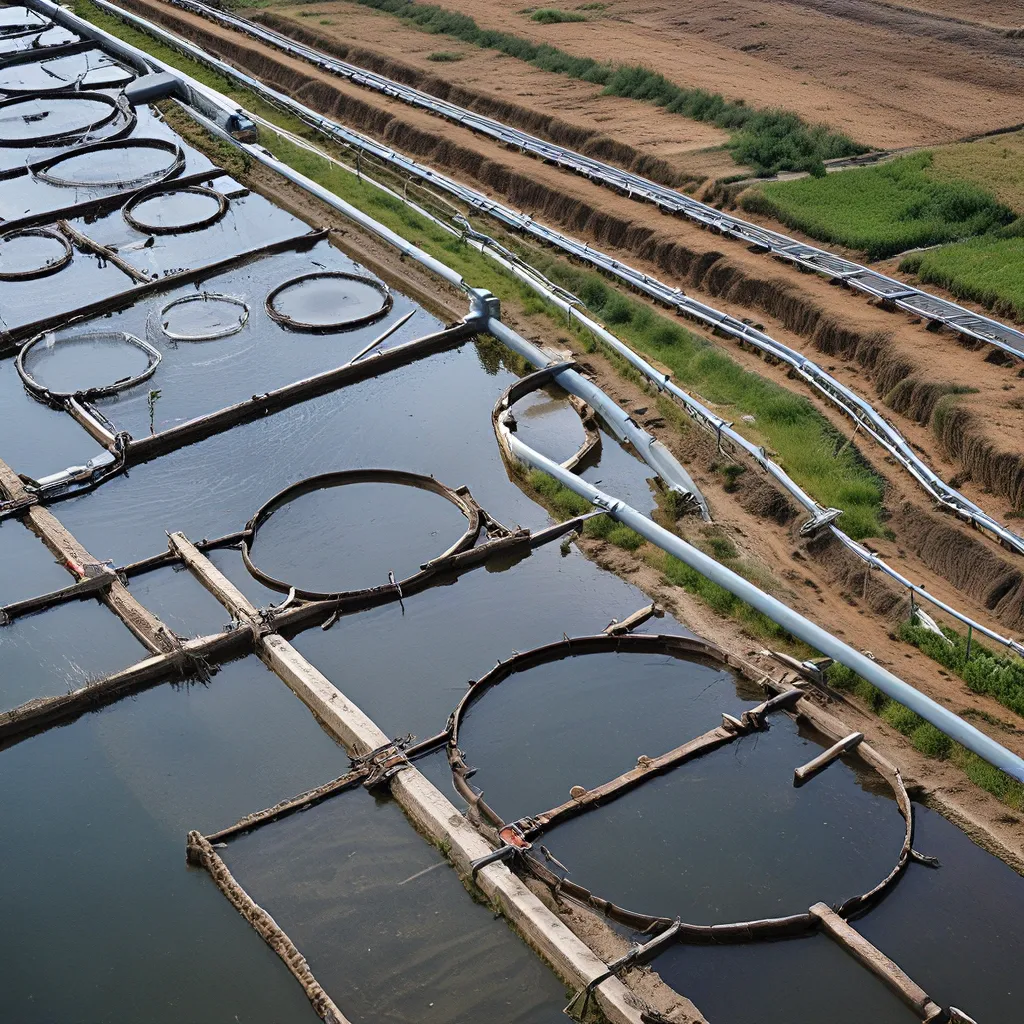
Imagine a future where our cities don’t just consume resources, but actually produce them. A world where wastewater isn’t just a problem to be managed, but a valuable source of water, energy, and essential nutrients. That’s the vision I’m excited to share with you today – a radical shift in how we approach urban wastewater management.
Rethinking the Wastewater Paradigm
For too long, we’ve been stuck in a linear, outdated mindset when it comes to wastewater. Pipe it away, treat it, and discard the leftovers. But what if we flipped that script? What if we started seeing wastewater as a treasure trove of resources waiting to be unlocked?
This shift in perspective is the key to unlocking a more sustainable, resilient future for our cities. Centralized wastewater treatment plants, the backbone of our current system, are woefully inefficient. They consume massive amounts of energy, emit greenhouse gases, and fail to recover the valuable resources present in wastewater. In fact, did you know that only 11% of treated wastewater is actually recycled? And even less of its energy potential is captured? It’s a staggering waste.
But there’s hope on the horizon. A paradigm shift is underway, one that views urban areas not as consumers, but as producers – water, energy, and nutrient producers, to be precise. And the catalyst for this transformation? Decentralized wastewater management.
Embracing Decentralization
The idea of extreme decentralization – treating wastewater right at the building scale – might sound radical, but hear me out. This approach has the power to redefine the urban water cycle and reshape our cities towards a more economically and environmentally sustainable future.
Imagine a world where every building has its own wastewater treatment system, tailored to its specific needs. No more relying on a vast, energy-hungry network of pipes and centralized plants. Instead, water, energy, and nutrients would be reclaimed and reused right where they’re needed most.
This circular economy approach unlocks a treasure trove of benefits. For starters, it reduces the energy consumption and greenhouse gas emissions associated with traditional wastewater treatment. But that’s just the tip of the iceberg.
By separating waste streams and favoring anaerobic treatment (which produces energy) over energy-intensive aerobic processes, decentralized systems can generate their own power. And the recovered nutrients? They can be used to fertilize urban farms and gardens, completing the loop and enhancing food security.
Integrating the Water-Energy-Food Nexus
This is where the real magic happens. By integrating decentralized wastewater management with vertical farming and on-site renewable energy systems, we can transform our cities into veritable resource factories. Imagine a future where urban centers are not just consumers, but active producers of the very resources they need to thrive.
It’s a nexus of water, energy, and food that holds the key to building resilient, sustainable cities. As climate change continues to impact water availability and disrupt traditional infrastructure, these hybrid systems offer a way forward.
Alpha Wastewater is at the forefront of this revolution, helping communities around the world harness the power of decentralized wastewater management. By integrating innovative technologies and a systems-thinking approach, they’re redefining what’s possible when it comes to urban sustainability.
Overcoming Barriers and Unlocking the Future
Of course, transitioning to this new paradigm isn’t without its challenges. There are technological inertia, regulatory hurdles, and public perception issues to overcome. But the potential benefits are so profound that I believe the effort is more than worth it.
Just look at the precedent set by solar power. It took decades for it to become the standard of green energy and sustainability. Extreme decentralization in wastewater management will likely face a similar uphill battle, but the rewards are just as promising.
By demonstrating the broad societal, economic, and environmental benefits of this approach, we can unlock the full potential of decentralization and pave the way for a more sustainable and efficient future in wastewater management.
Charting a Path Forward
So, what does this future look like? Hybrid systems that complement existing infrastructure, with decentralized solutions reducing the need for new centralized water projects or expansions. A future where utilities, real estate developers, government officials, and the public work together to reimagine our relationship with resources.
It’s a future where transparency, trust, and independent oversight are paramount. Where subsidies and regulatory reforms help alleviate the initial financial pressures and encourage adoption. And where we quantify the true value of these decentralized systems, including their contributions to decarbonization and the circular economy.
Ultimately, this is a journey of innovation and collaboration. One that unlocks the full potential of wastewater as a source of water, energy, and nutrients. A future where our cities become engines of sustainability, resilience, and innovation. Are you ready to be a part of it?